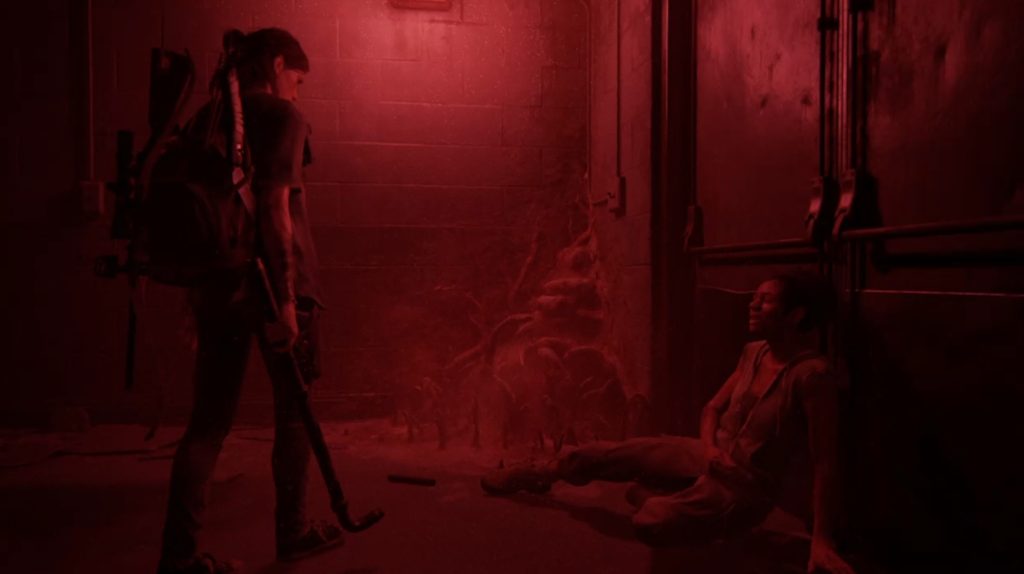
The World of The Last of Us Leaves Black Trauma Behind
CW/TW: Mental +/- physical trauma, death
Honestly, The Last of Us Part II (2020) couldn’t have released at a worse time. The year 2020 highlighted a continuous and repetitive pattern of anti-Black racism, violence, and death coupled with the COVID-19 pandemic, wherein Black communities were hit especially hard. With this bombardment of real and daily trauma, the brutal coda of the Black female character named Nora Harris cemented for me that Naughty Dog Studios isn’t adept at telling stories with Black characters, nor understands the impact of Black death. With the passage of time between games and how the world had responded to the outcry of ‘Black Lives Matter’, I thought that the sequel would have undergone a lot of self-reflection and course-correct after some abysmal pitfalls regarding race. As all of the accolades and Game of the Year awards began to pour in for The Last of Us Part II, I felt gravely and deeply hurt because there was not a larger conversation about how these games have had an insidious history of disappearing Black people. I immediately thought of the media trope entitled: fridging.
The narratives tropes of ‘Black person dies first’, ‘bury your gays’, and where the term fridging originates–‘Women in refrigerators’–all involve the death of a central character who in turn becomes pseudo-sacrifice that motivates the actions of the main character to seek revenge (and in the case of Black death) elevates the perceived danger of the situation for the surviving white people. Furthermore, in Naughty Dog’s attempts to tell ‘raceless’ gaming stories, the people of color–especially Black characters–have suffered the most. Racially, Black characters have the most visible screen time and dialogue across all of the games thus far. Yet, they have all met the same grisly fate. One could make the case that they aren’t the main characters, so their lives could be short in the narrative. You would be right if other white characters attached to Joel and Ellie respectively didn’t survive to the game’s conclusion consistently. Moreover, the visual trauma of seeing Black death is made hyper-visible by proxy of the reality we live in.
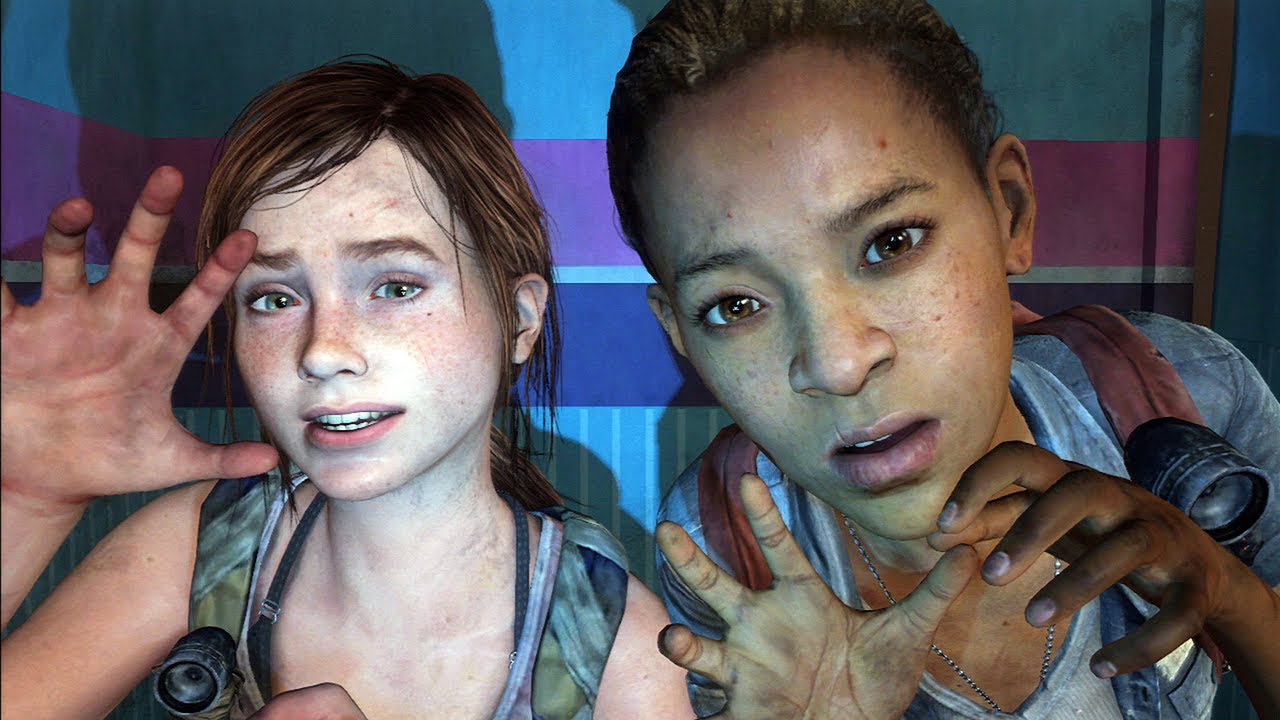
In her 2017 TED Talk entitled: The Racial Politics of Time, Dr. Brittney Cooper stated, “Ta-Nehisi Coates argues that ‘the defining feature of being drafted into the Black race [is] the inescapable robbery of time.’ We experience time discrimination he tells us, not just as structural, but as personal: in lost moments of joy, lost moments of connection, lost quality time with loved ones, and lost years of healthy quality of life. In the future, do you see Black people? Do Black people have a future? What if you belong to the very race of people who have always been pitted against time? What if your group is the group for whom a future was never imagined?” So, when I stated at the onset that seeing Black death constantly in the TLOU series was traumatizing, these are the feelings of foreshortened future for Black lives that always linger even in digital spaces.
Naughty Dog’s position as one of the shining stars of the gaming world has been hard wrung and I’ll give them their due in that regard. It’s no small feat to survive decades of console platforms with your good name intact, but somehow despite all of the controversy in the past few years with their ‘culture of crunch’, animators and designers alike still desire to be associated with the company. However, in the midst of all of their success, there has been a key series of elements that have been missing from their games especially when they’ve delved into the lives and identities of people of color. For example, Nadine Ross from the Uncharted series (2007–2017) has a unique racial and ethnic identity as a Black South African that could have been explored more in Uncharted: The Lost Legacy (2017) when contrasted with the Indian-Australian Chloe Frazer storyline.
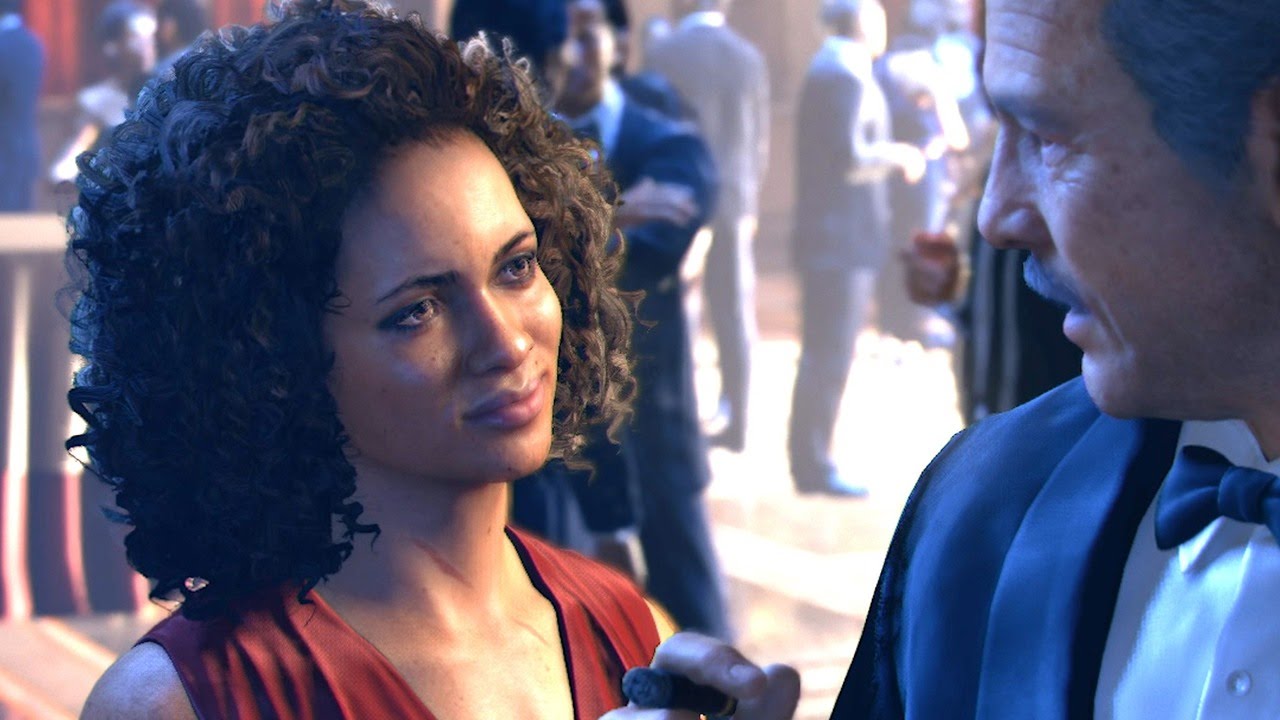
The game’s story delves into racial and ethnic purity discussions that would have been fascinating for both characters to engage with for more than a few seconds here-and-there of dialogue. The name of the game alone ‘The Lost Legacy’ had me enthralled with the infinite possibilities for engaging with topical discussions like identity and community, but alas there’s more character/relationship growth weaved throughout the story—which was phenomenally done by the way—than really heavy topics like race and gender. (Thank goodness for fan fiction because a lot of writers took the brush strokes from the game and ran with it.) After The Lost Legacy was released, I also had to sit with the fact that Naughty Dog (even though they got a ton of backlash for it) still voice-cast Laura Bailey –who is white–as Nadine Ross.
They are a studio who up until this point had practiced same color casting (when people of color were even present) and I commended them for it. The irony that there’s a collective discussion now about the morality and importance and career opportunities inherent in voice work is really something. When people of color were pleading and begging various entities not to participate in ‘digital blackface’ they were largely ignored and even targeted with harassment and violence. Oh, how the world tips on a new axis especially when a reckoning about targeted racism emerges. The physical and digital protests against police brutality and support of Black Lives Matter have permanently gained traction–I hope.
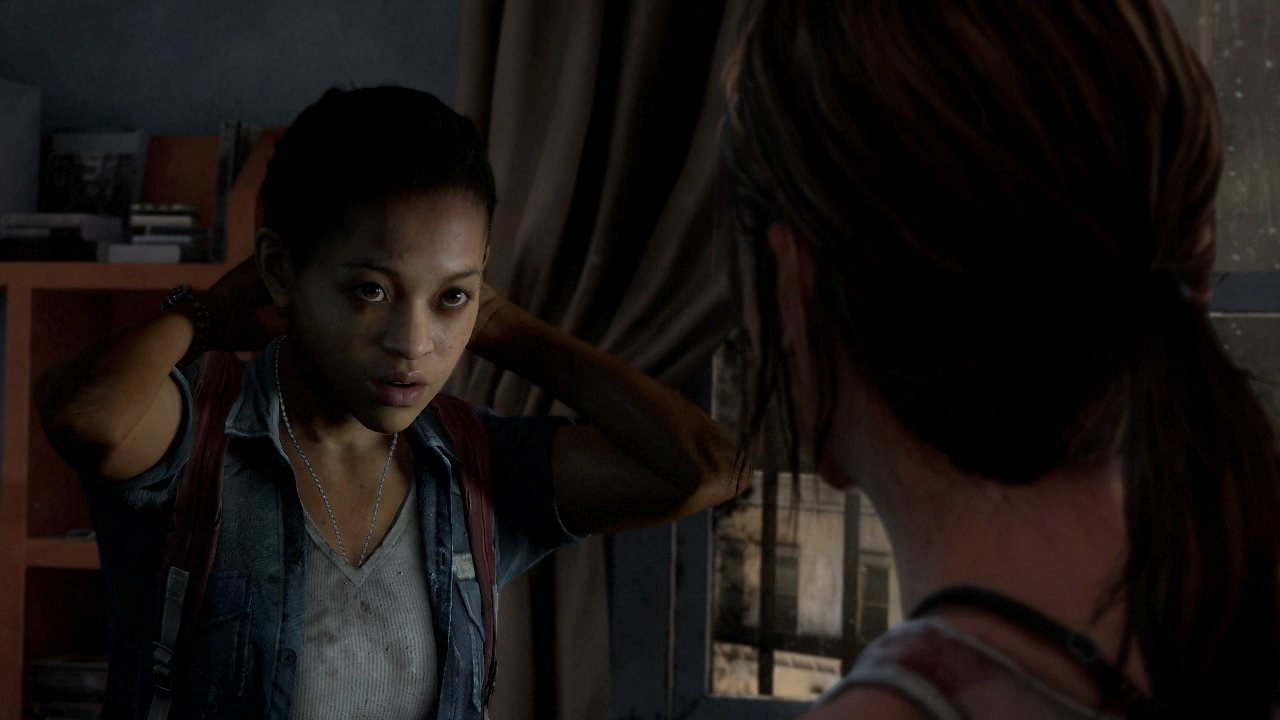
I also realize that Naughty Dog shouldn’t be the bastion of inclusive gaming for me, but they presented themselves to the world this way with their public and private ethos. *And if we find out in a few months or years that they have nefarious goings-on beyond the exhaustive workday policy stuff, we’ll drag them accordingly, but until then…* They took the leap and the lead in many ways with the people that they included as visual representations of the world. The brilliance of utilizing the post-apocalyptic story format that they did was showing that life continues even after tragedy and societal upheaval. By explicitly having Black people in your world, you/they are acknowledging that Black people exist in the future and that their lives are precious and valued.
In the first game alone, three (and if you get technical about the timeline regarding TLOU: Left Behind DLC four) Black characters die in-game. If these characters weren’t so few and far between in the first place–with other Black characters to balance the weight of their deaths–perhaps (and this is a BIG perhaps) I wouldn’t have wrestled with the queasiness I experienced then and now regarding the demise of their characters. TLOU Part II follows the same formulaic trajectory of Black death with the brutal (thank god off-screen) torture of Nora Harris whose eerie and shallow breaths as she dies from damaged lungs was too horrific to describe, especially as the rattle of ‘I can’t breathe’ echoed in the periphery of my mind. Plus, the leader of a militaristic faction akin to the Fireflies from the first game (whose character arc echoes that of a Black Woman named Marlene) named Issac Dixon dies off-screen. When the dust settled towards the game’s conclusion there were no more Black character’s stories to engage with and the only person of color left alive was a young Asian boy named Lev.
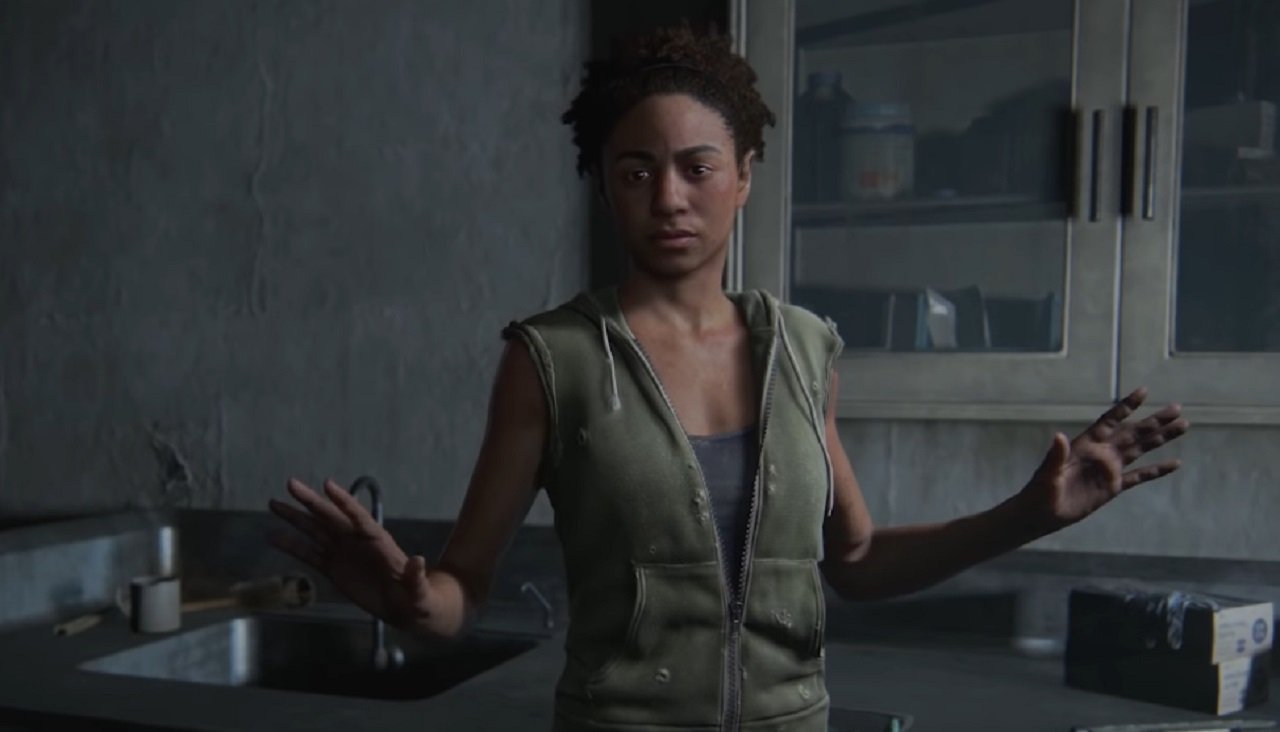
The fact that the playable white characters throughout the series were actively or partially responsible for so many deaths of Black people and other people of color stings, especially with the hindsight of racial equity and their glaring absence from the narrative in retrospect. Soberingly, Naughty Dog Studios, in the pursuit of grim post-apocalyptic storytelling, has a race problem. I was excited when I first saw the stories unfold for the Black characters in TLOU. I naïvely believed that they would make it to the games’ conclusion. Naughty Dog tried and ultimately failed to incorporate Black characters into its world and story by ingratiating them into key story moments for its main characters to interact with, but effectively did away with them when they no longer served a narrative purpose or were required to give one of the main characters an emotional cathartic release. If the first gut reaction for a writer to make a moment impactful is death–especially a Black person’s– then they need to go back to the foundational elements of the craft and think bigger and think broader. Death doesn’t necessarily equal depth and vice versa.
Imagine what the franchise would have looked like if more of the Black and people of color cast members had been allowed to live and the stories that would have emerged as a result. Instead, the memory of them lingers like ghosts. In Naughty Dog’s precarious and perhaps misguided attempts to navigate raceless gaming experiences ‘for everyone’, they are perpetrating even greater critiques about racism at large, because their Black characters are summarily and systematically killed from their storylines. Moreover, if a sequel is greenlit and these issues remain unaddressed internally within the studio’s writing department, their trend of expendable Black people will continue into further installments. What’s jarring from a writing and player perspective is their keen attention to detail and poise in matters of gender/sexuality and religious exploration, but stumbling into these chasm-sized holes regarding race.
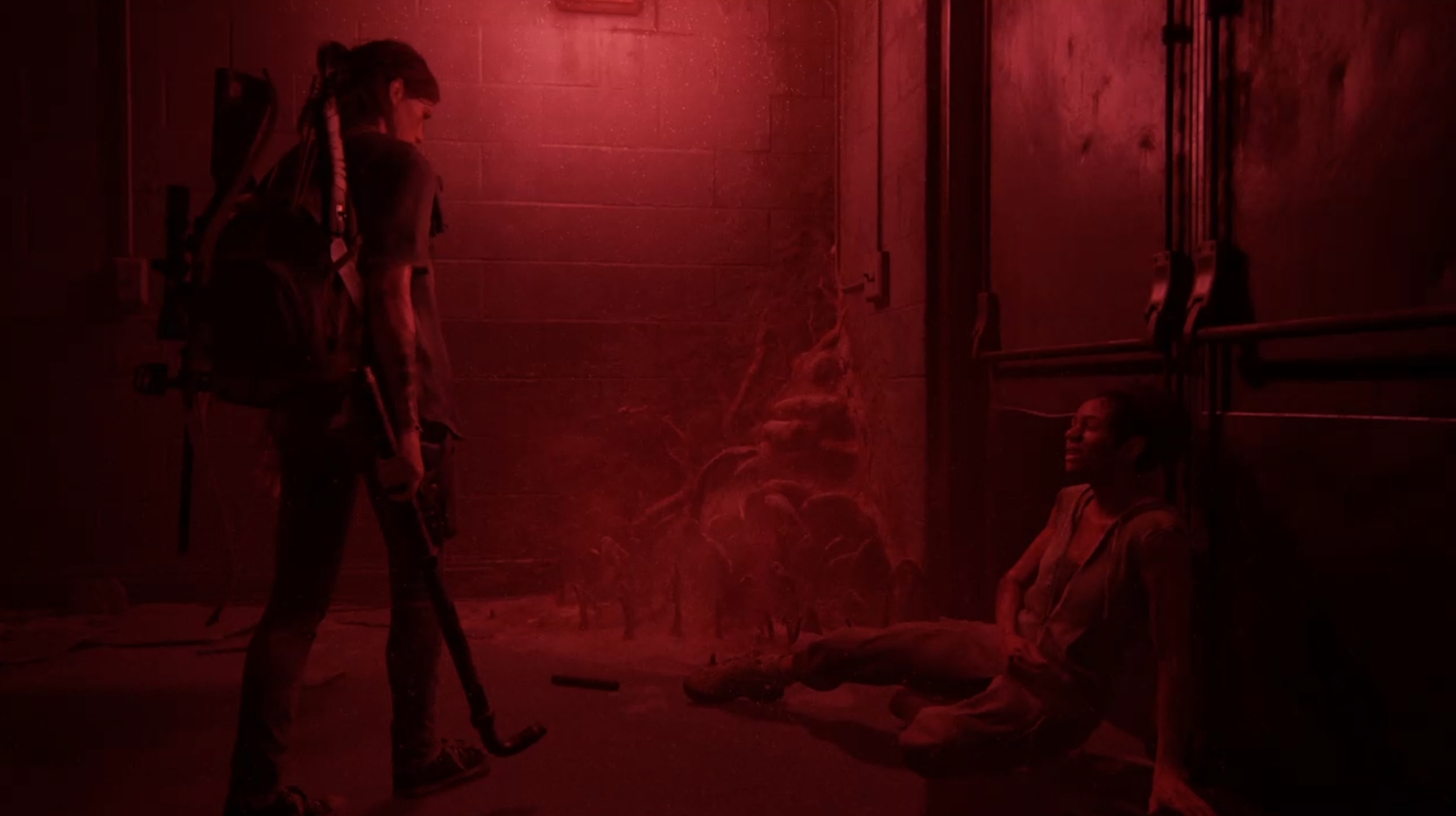
There’s a lot in the media we ingest that we should grapple with regarding subtle or blatant sexism, racism, homophobia, transphobia, and ableism. A lot of these cringe-inducing moments keep happening because people in positions of power don’t have the baggage of ‘being woke’ all the time or are equipped with critical media literacy. Positionality within media matters–especially in regards to humanization. When people–Black characters, in this case–are represented as constantly disposable, the value of their lives is dually erased in media and daily life. Particularly, trying to enjoy one of my favorite film genres is a Sisyphean task at times, because in the apt words of Tananarive Due during the documentary of Horror Noire: A History of Black Horror (2019), “We’ve always loved horror…it’s just that horror hasn’t always loved us.”
Even as a Black person, I understand unpacking and exploring race is very very difficult and I’ve been doing it since day one (i.e, understanding what my physical positioning in the world means). It’s a sticky wicket to write characters that you don’t know without falling into stereotypes or placation. The main characters in The Last of Us Part II traverse a cross-country bloody vengeance story wherein they become further and further traumatized and increasingly disenchanted with violence and that’s where the story kept me riveted. The humanity and growth story Naughty Dog were aiming for didn’t materialize for me because so many Black persons were used as props, targets, and expendable objects to get there. This franchise, however lofty and ambitious, has left behind the bitterest of aftertastes because I’m perpetually haunted by its one defining feature: The Last of NONE of Us.






Fine read. I think you could lose the opening sentence for a stronger intro imo.
I have some questions for you. How could the developers have included Black people in this game in a way that was not offensive to you, while still being true to the realities of the world they live in?
How many Black people need to get a happy ending before you’re satisfied with their story arcs?
I ask these questions as a Black man who sees Black people in games like this and I’m excited for the representation they bring. I’m also aware that in a game series whose hallmark of storytelling is profound loss, I know what to expect. I think my point is that you want to see Black happy endings in a game where sometimes death is the happiest ending a character gets, no matter their race.
Much respect for your work, thanks for sharing. I linked a piece I wrote last week on The Last of Us 2 and how homophobia affected its commerical success.
Hello Jordan, thank you for reading my piece and the thoughts you had about thinking more broadly about video games. Offended isn’t the word I’d utilize…I would say more disappointed by the lack of nuance with the Black characters that are introduced. Where is their layering? Where are they from? What ethnic group are they from? We know that Black people are not monolithic so it would have been nice to get to see that. We get a lot of surface-level with them and not a lot of internal necessarily. Things happen to a lot of these characters, with minimal agency given to them, it seemed.
This game (and Naughty Dog’s entire catalogue) is interesting and a lot to unpack because there are so many layers to what they’re trying to do in the story-world-character building department. The optics ultimately look extremely bad when Black characters and other people of color I should add are given similar mistreatment. I’ve seen a few LatinX writers address how the games stereotypes the one prominent character that is of unidentified Hispanic and/or LatinX background.
The scene where we saw Dina’s Jewish story and how that’s important to her, where she came from, and how we received a lot of careful layering with her was really beautiful, and I wish we’d gotten that with the Black characters as well. They were all very…one-note if you will. Great voice acting, but not a lot to peel away, regarding layering. As mentioned, writing characters is difficult and there are particulars you have to land to make your Black characters resonate. I loved to see them all, but how they were all ultimately treated just really made me take notice…thus this piece.
Another writer named Cameron Kunzelman wrote a piece entitled, Destroyed In the Cut, that explored some of the themes of Black erasure, death, and lack of character work that went into crafting the Black characters. Link attached: https://bulletpointsmonthly.com/2020/07/22/destroyed-in-the-cut-the-last-of-us-part-ii
The show is following in the footsteps of the game. It is a very pernicious anti-blackness that is very blatant as far as I can tell.
Making Sarah black added to the already traumatic event of her death, steeping the event in a combination of misogynoir (violence against black women) of general fridging of women (plot point of using a women’s death as motivation for a male protagonist).
I know Marlene will die, as did Ellie’s love interest, Riley (a black, nonheteronormative, girl) in the game.
Making Bill gay seems revolutionary on the surface, but killing him and his partner fits neatly into the “kill your gays” trope.
I having trouble with Henry and Sam’s deaths in the show, having to relieve that trauma again.
I do not think it is a matter of not watching it: it is more a matter of why does it exist in the first place.
I forgot, they made Sam deaf.
This show/game hates minority characters.
Bill was already gay in the game. His partner died in both forms of media, but at least this time they gave them both a “happy” ending.
But yeah, the show is becoming more guilty of this than the game was. At least Joel isn’t white this time around.
You’re right about what you say.
I hadn’t seen Bill in the game as gay (as it should be honestly) but describing his and Frank’s ending as “happy” requires the most liberal of imaginations.
There is literally no reprieve, but I am silenced often when my objections arise, criticizing this in the game and the show.
You’re probably right in the show being a worse iteration of -isms than the game is.